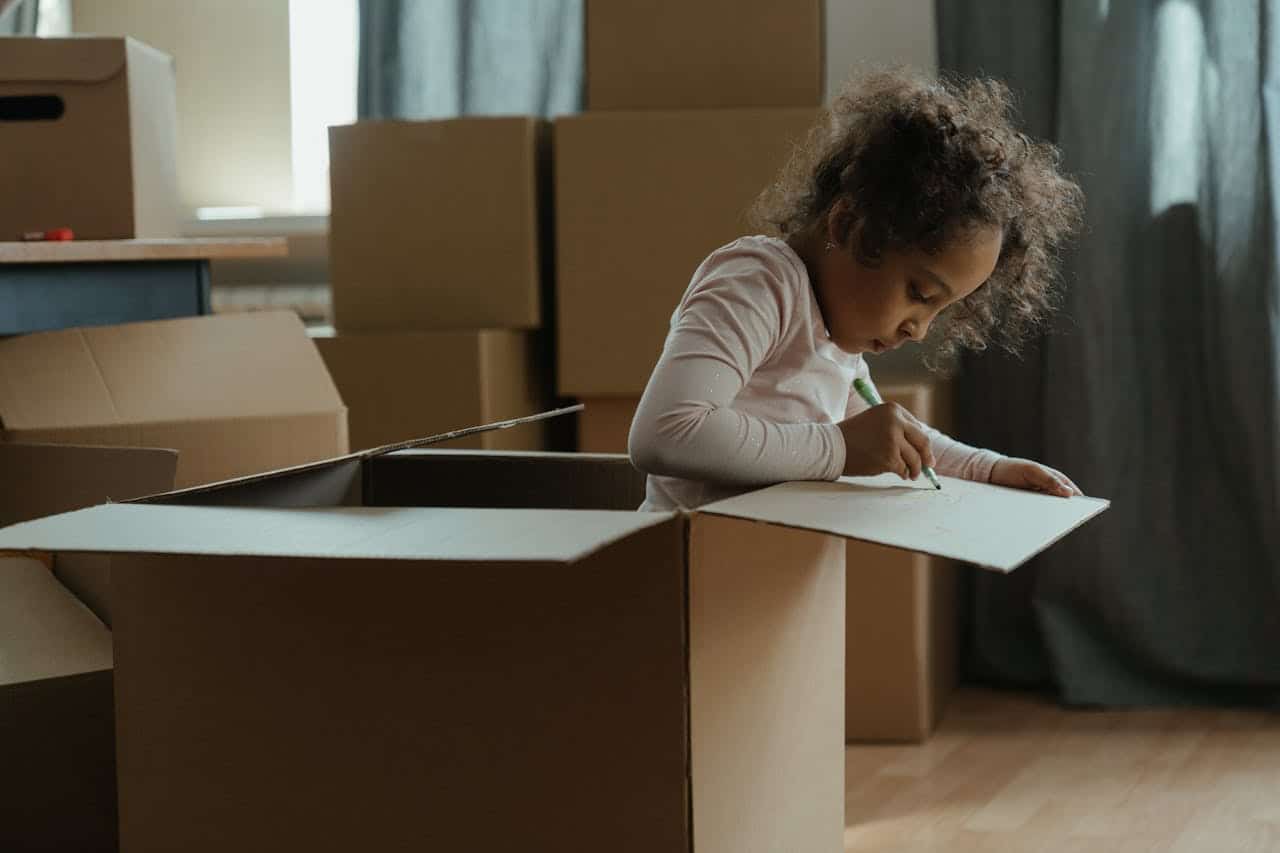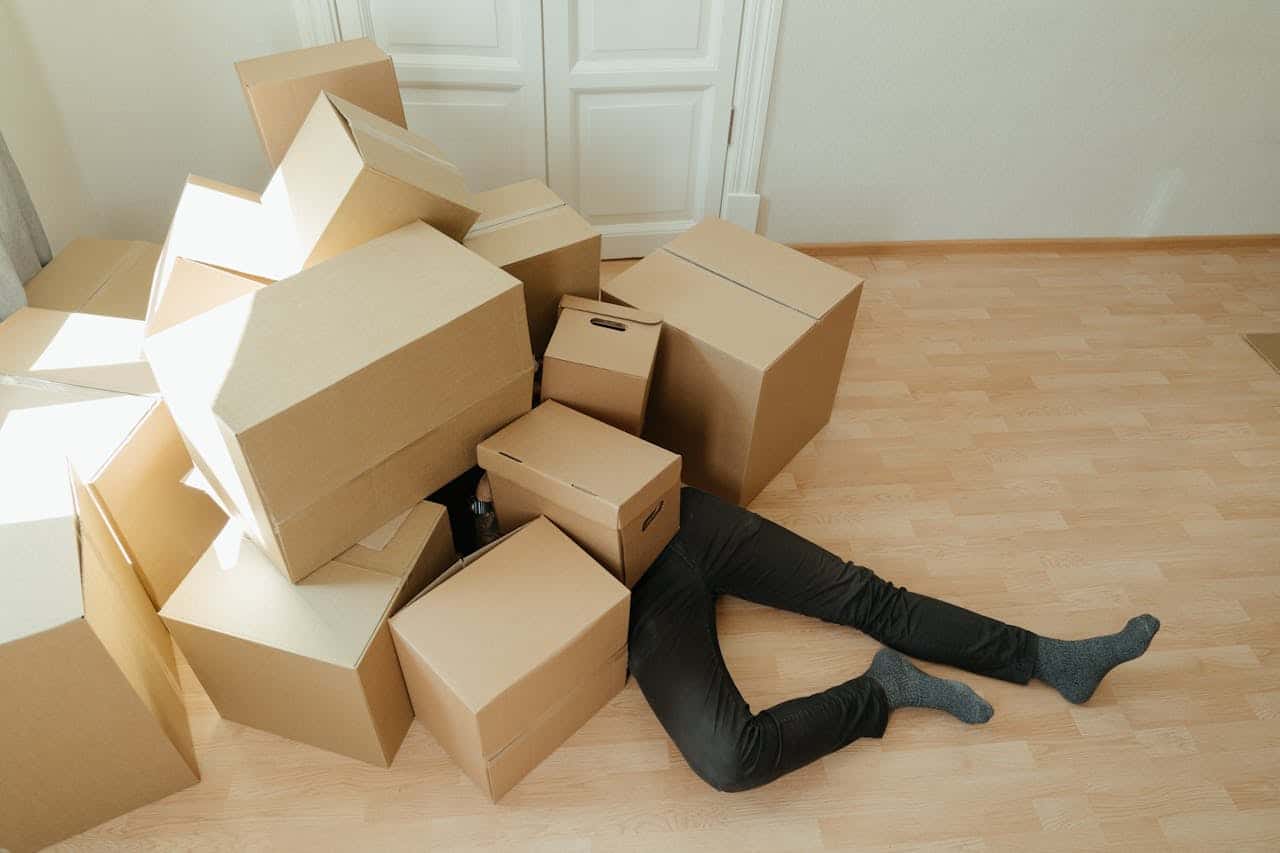Moving has a way of testing everyone. It’s not just about boxes and bubble wrap—it’s a full-blown emotional workout. Packing under pressure reveals hidden habits, forgotten memories, and a lot of tension. In the middle of all that, you start seeing your family—and yourself—in a whole new way. Some moments make you laugh, while others test your patience. But through it all, you learn more than you ever expected.
Stress Shows Everyone’s True Style
The moment you start packing under pressure, different sides of everyone begin to show. One person might take charge like a drill sergeant. Another might vanish into a room and pretend nothing’s happening. Some become bossy, while others remain quiet. Even kids act out in strange ways—clinging, crying, or turning wild. These reactions aren’t random. They show how each person deals with stress. Watching it happen can be frustrating, but it also provides clues about what people need when things get tough.
How to Organize Your Move to Reduce Stress
While everyone’s stress response will differ, one thing that can help calm the chaos is being organized. A little planning goes a long way. Break your tasks into smaller chunks—like packing one room at a time or labeling boxes clearly. Create a moving checklist to track progress and stay on schedule. Delegating tasks based on individual strengths also helps. In places like Florida, where hurricane season can bring unexpected challenges, staying organized is even more important. The more you plan ahead, the less stress will take over, and the smoother the process will go. For an easier move, there are tips every family should follow that can make settling in much less stressful.
Everyone Packs Differently (And That’s Okay)
Everyone has their way of packing, and it rarely matches yours. One person might fold every shirt and label each box by room. Another might throw everything into trash bags two hours before the truck arrives. Some hold onto every scrap of paper; others toss family heirlooms without blinking. These habits can be annoying, but they reveal a great deal about how people perceive their belongings—and their sense of control.
Instead of trying to fix someone’s packing style, try observing it. The neat packer might feel anxious and need order. The last-minute one may be trying to avoid stress. Allowing people to do things their way (within reason) helps avoid arguments and keeps things moving. It’s not about who’s right—it’s about getting through it without losing your mind.

Arguments Multiply—But So Can Laughter
Tension runs high when moving, and arguments seem to pop up out of nowhere. Someone packed the charger you were using. Someone else can’t find their favorite mug. You argue over what to keep, what to toss, and who forgot to tape the bottom of the box. It’s easy to snap when you’re tired and surrounded by chaos.
But funny things happen, too. You might uncover that hideous sweater someone secretly kept. Or laugh at the ancient snack hiding in the back of the pantry. These little moments help cut through the stress. A shared laugh over something silly reminds you that you’re still a team. You’re all frustrated—but you’re also in it together.
Kids React to Your Energy
Kids might not pack boxes, but they definitely feel the pressure. They watch your face, your tone, and your movements. If you’re rushing around and snapping, they pick up that tension fast. Even if you try to act calm, they can sense when things feel off. The best thing you can do is talk to them simply and include them in small ways—give them a box to decorate or let them choose what to pack first. It helps them feel like part of the move instead of powerless in it. When your energy is steady, theirs usually follows.

You Learn Who’s Actually Helpful when Packing Under Pressure
Moving shows you who’s really there for you. Some people vanish as soon as you mention boxes. Others promise to help, then ghost on moving day. But then there are the quiet helpers—the ones who show up early, bring snacks, and stay until the last box is in the truck. These moments stick with you. You start to see who puts in effort when things aren’t fun or easy. Sometimes, it’s not who you expected. And while it can be disappointing, it’s also an opportunity to recognize the people who truly care.
You Discover Your Patterns
Moving doesn’t just reveal things about others—it holds a mirror up to you. Do you try to control everything? Shut down when things get messy? Snap at people over small mistakes? Packing under pressure brings out habits you might not notice in everyday life. Perhaps you procrastinate until the last second, or maybe you overplan to feel in control. Whatever your patterns are, moving makes them loud and clear. Instead of judging yourself, try noticing those habits. That awareness helps you respond better—not just during moves, but in any stressful moment.
Letting Go Is Hard—But Freeing
Letting go of stuff is harder than it seems. Old clothes, books, broken furniture—they all carry memories. Even things you haven’t used in years can feel impossible to toss. That’s normal. Your brain links objects to moments, and parting with them can feel like losing pieces of your past. But once you start, something shifts. The space grows. Your load feels lighter. You realize that most of what you kept was just habit, not a genuine need. Letting go might feel sad at first, but it clears room for better things ahead.

You Can’t Control Everything—And That’s Fine
Even with the best checklist, things will go sideways. Boxes break. Rain hits on moving day. Someone forgets to lock the storage unit. No move ever goes perfectly, and trying to control every detail will only exhaust you. Accept that some chaos is inevitable. What matters more is how you respond when things don’t go as planned. Stay flexible. Laugh when you can. Focus on fixing the next thing instead of dwelling on the past. The less you try to control it all, the smoother it starts to feel.
Conclusion: You Move, But You Also Grow
Moving is more than just a physical shift from one place to another. It’s a journey that pushes you and your family in ways you didn’t expect. As you’re packing under pressure, you learn about your habits, strengths, and weaknesses. You see the quirks of those around you, how they deal with stress, and how they show up when it matters. It’s a challenge but also an opportunity for growth. When the boxes are unpacked and the dust settles, you realize that the lessons learned during the chaos stay with you, shaping who you are and how you move forward.




